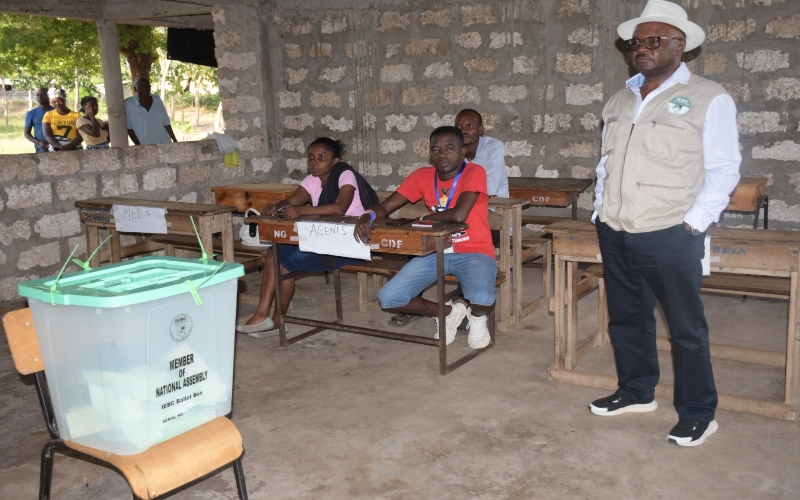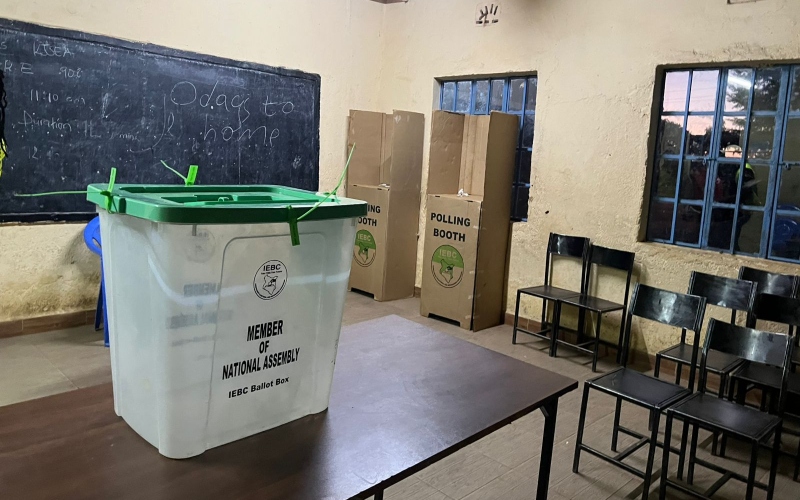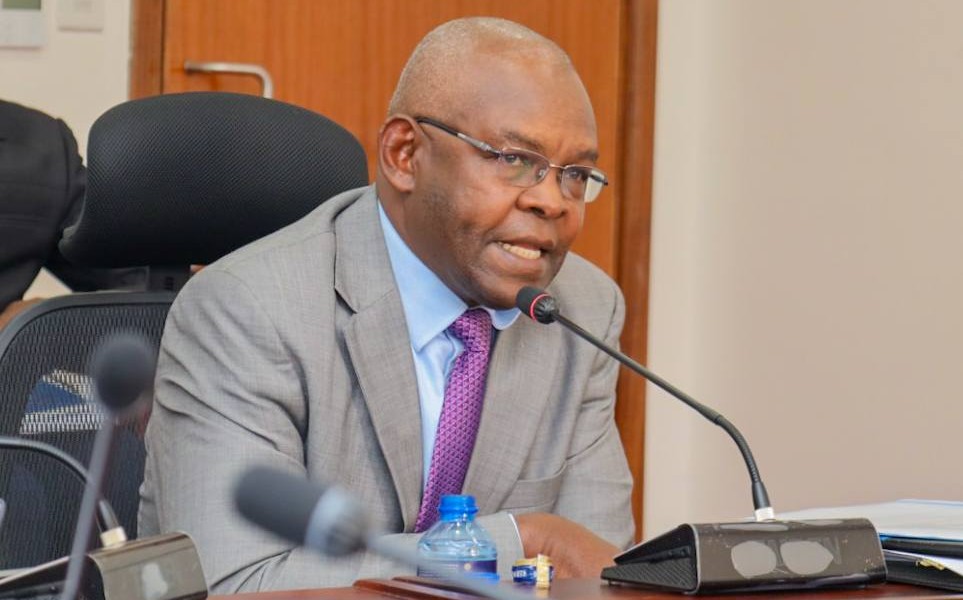Eastleigh business leaders decry increased import duties during meeting with Trade PS
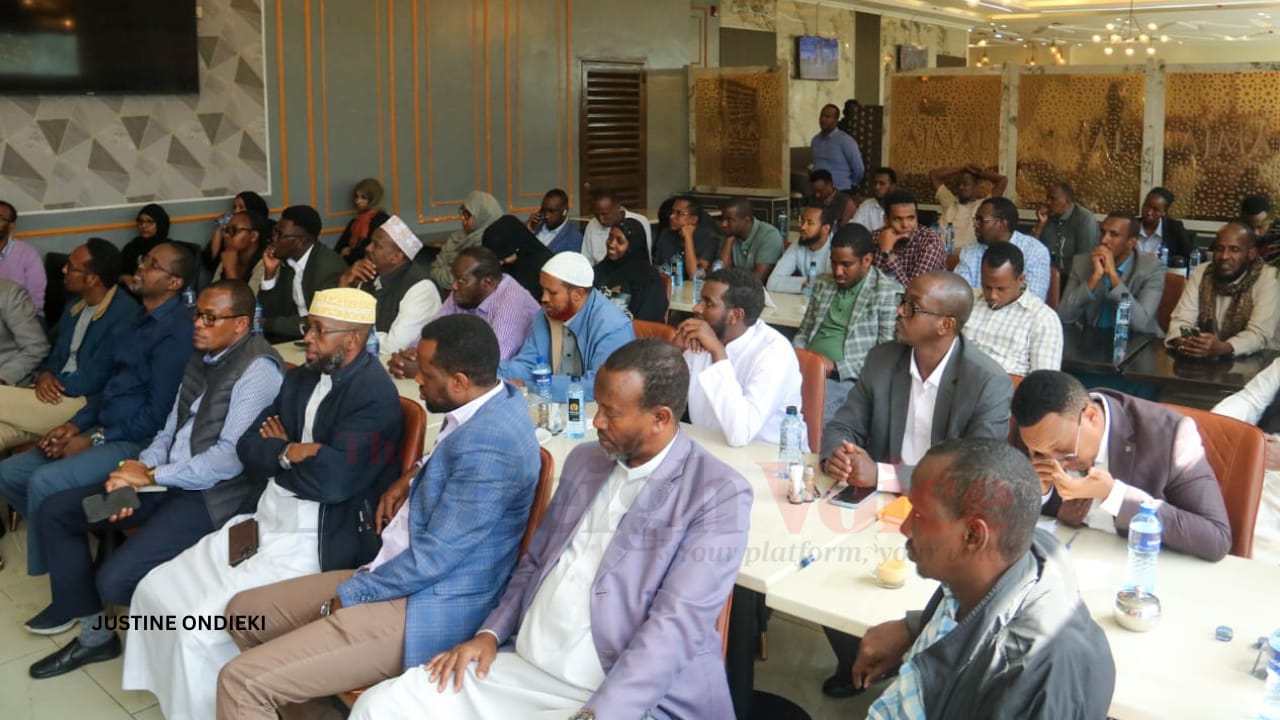
Business owners reported that the cost of importing goods such as clothes, shoes, curtains, carpets, aluminium products, and furniture has risen sharply due to new tax measures.
Members of the Eastleigh Business District Association (EBDA) met with Regina Ombam, the Principal Secretary in the State Department for Trade, to express their concerns about recent changes in taxation policies and their negative effects on businesses in Eastleigh.
The meeting, held on Thursday afternoon, focused primarily on the impact of the new Finance Bill, which has led to increased taxes on imported goods.
More To Read
- Nairobi County, Eastleigh Business Association agree on food safety and restaurant licensing
- Safaricom partners with Eastleigh business community to enhance network and internet connectivity
- Eastleigh’s Sgt. Kahande Street turns hazardous as stagnant water, traffic jams worry locals
- Eastleigh traders decry soaring taxes during meeting with KRA officials
- Eastleigh residents urged to register for SHA during opening of Globcare Hospital
- Somalia Independence Day celebrations banned in Eastleigh over security fears
Business owners reported that the cost of importing goods such as clothes, shoes, curtains, carpets, aluminium products, and furniture has risen sharply due to new tax measures.
These increases have made it difficult for many traders to operate, and some have already closed their businesses, resulting in job losses in the area.
During the meeting, EBDA members gave specific examples of the challenges they are facing. They noted that most carpets are not produced locally in significant volumes. A recent 200 per cent increase in import duty has made it uneconomical to bring carpets into the country. This has negatively affected both wholesalers and retailers, with some opting to stop stocking the products altogether.
Another concern was raised regarding aluminium, which now attracts a specific duty rate of Sh200 per kilogramme.
Business leaders explained that aluminium is a key material in sectors such as construction and manufacturing.
They argued that the decision to raise taxes on aluminium was made without consulting industry stakeholders. The added costs are threatening the competitiveness of local manufacturers and could delay or cancel ongoing development projects.
Traders also pointed out that the abnormal increase in import duty on blankets under Chapter 63 of the HS Code has disrupted the domestic market.
Many traders have chosen to divert their shipments to neighbouring countries that have lower tax rates.
This shift has led to reduced customs revenue, created an imbalance in cross-border trade, and resulted in a shortage of essential goods such as blankets in the local market.
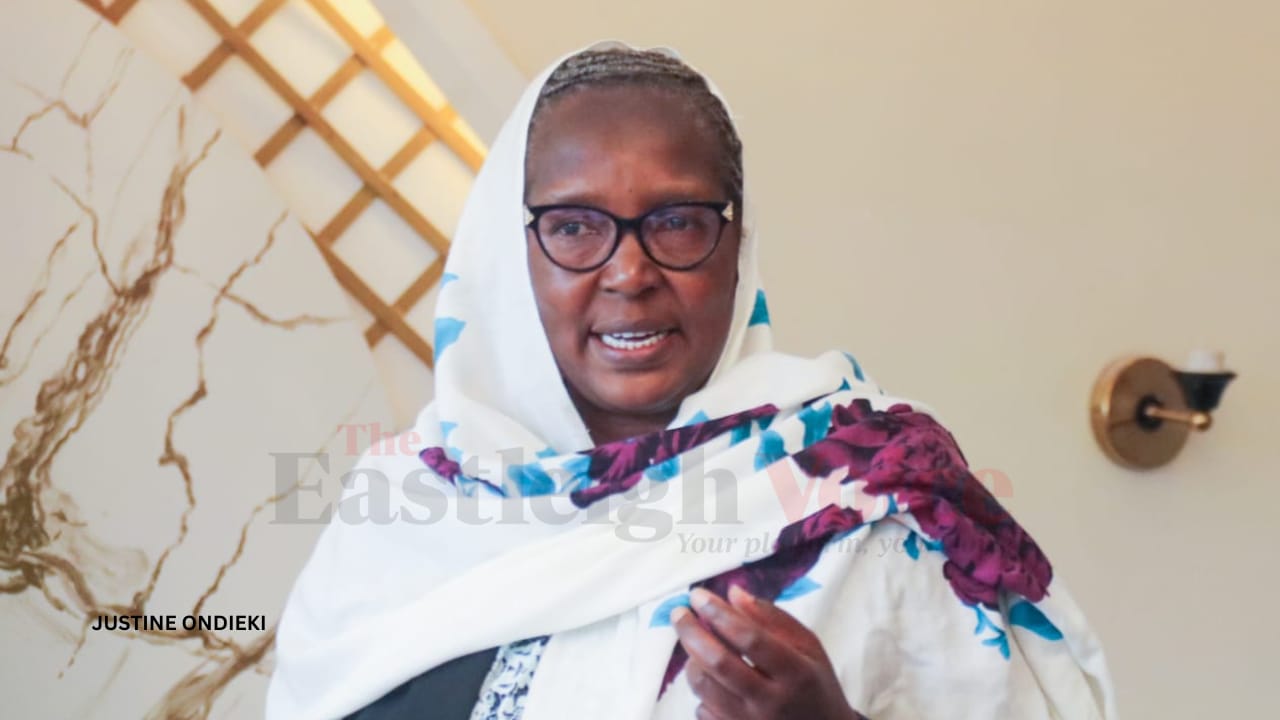 The Principal Secretary for Trade Regina Ombam addressing members of the Eastleigh Business District Association (EBDA) over their concerns about recent changes in taxation policies and their negative effects on businesses in Eastleigh on July 24, 2025. (Photo: Justine Ondieki)
The Principal Secretary for Trade Regina Ombam addressing members of the Eastleigh Business District Association (EBDA) over their concerns about recent changes in taxation policies and their negative effects on businesses in Eastleigh on July 24, 2025. (Photo: Justine Ondieki)
Speaking on behalf of the traders, Noor Abdirashid highlighted the extent to which the situation has deteriorated. He said that traders have been forced to import their goods through Tanzania and then transport them to Kenya. In this way, they only pay Value Added Tax (VAT) upon entry into Kenya.
He explained that some even consider exporting through Uganda, which has no port, because it is cheaper than importing directly into Kenya.
"Imagine exporting your goods through Uganda, which has no port, because it is way cheaper to do so as compared to importing through Kenya," said Noor.
Noor said that this practice, though necessary for survival, results in revenue loss for the Kenyan Government.
He noted that while other countries are actively attracting investors, Kenya’s high taxes are driving them away.
The business community also complained about the delays in clearing goods at the port. They explained that the time it takes to offload and clear consignments has increased, which leads to more storage fees and higher prices for final consumers.
In response to these issues, the business leaders proposed several solutions.
These included an urgent review of the revised duty rates for affected goods, immediate consultations with stakeholders to assess the real impacts of the new tax rates, and suspension or reversal of tax increases, especially in cases where there is no local production.
They also called for better transparency in future policy changes and stronger engagement with industry players.
Principal Secretary Ombam acknowledged the seriousness of the concerns raised. She stated that the government values the businesses in Eastleigh and the significant revenue they contribute.
She emphasised that the government does not wish to see any businesses closing down.
“When we see businesses in Eastleigh going in the wrong direction, as a government, we must come in and save them because we know what businesses bring to the government,” she said.
The PS committed to working on the issues and promised that many of them would be addressed by mid-next month.
She requested to be invited back to Eastleigh if the government fails to take action within that period.
“I am promising I am going to engage and support, and grow our business without discrimination. It is about growing the Kenyan economy,” she explained.
Ahmedkadar Dabar, the Member of County Assembly for the area, while addressing the meeting, acknowledged that in the past, Eastleigh businesses faced harassment through constant raids by agencies such as KEBS.
He said that although those practices have stopped, there are now new challenges coming in the form of high import tariffs.
“Eastleigh used to be terrorised by KEBS and other agencies carrying raids, but that doesn't happen. However, there are now people who are fighting Eastleigh through unannounced tariffs,” he said.
Ahmedkadar emphasised that Eastleigh contributes Sh252 billion to the national exchequer and that the government cannot afford to let the area’s businesses struggle.
The meeting ended with a renewed commitment from both the government and business leaders to find solutions that will sustain the Eastleigh business ecosystem and promote fair trade.
Top Stories Today
